
Despite nationalist rhetoric, voters chose change. Sunak conceded and congratulated Starmer, who promised national renewal, shifting from Conservative economic stability to Labour’s social justice focus…writes Buddhdev Pandya MBE
Outgoing Prime Minister The Rt Hon Rishi Sunak MP could not have imagined that his party might lose 240 seats when he called a snap General Election for June 4, 2024. The landslide victory for the Labour Party -Moderate Socialists – has ended an era in Britain marked by its first Prime Minister of Indian heritage.
Perhaps Britain may not see another Prime Minister of Indian heritage for a long time, as Nigel Farage, Party Leader of Reform UK, exposed one of the most sensitive inherited sentiments during the campaign debate, claiming, “The Tory leader, Rishi Sunak, doesn’t really care about our history; he doesn’t really care -frankly- about our culture.” This statement was categorised as a ‘dog whistle’ designed to awaken communal nationalist sentiments.
Sunak conceded defeat earlier in the night and said he had called Starmer to congratulate him on his victory. The country has voted for a significant historical change, as the political ideologies of the Conservative and Labour parties are diametrically opposed in terms of economic and social policies. In a true political sense, the country’s politics have moved beyond the ideals of figures like Nigel Farage, as ‘diversity’ has become a widely accepted norm in public life.
“Change begins now,” Sir Keith Starmer said in his victory speech. “We said we would end the chaos, and we will. We said we would turn the page, and we have. Today, we start the next chapter, begin the work of change, the mission of national renewal, and start to rebuild our country.” “Today power will change hands in a peaceful and orderly manner, with goodwill on all sides,” Sunak said after losing his seat. “There is much to learn and reflect on, and I take responsibility for the loss to the many good hardworking Conservative candidates… I am sorry.”

Comparative Analysis of Labour’s Keir Starmer vs Conservative’s Rishi Sunak Leadership
Keir Starmer’s Labour Vision may provide a helpful start for the new Labour government. As Chancellor and then Prime Minister, Rishi Sunak focused on economic recovery from the COVID-19 pandemic while managing inflation and public debt. His leadership reflected a blend of fiscal responsibility and growth-oriented policies, emphasising economic stability through efforts to control inflation and public debt. He also had to address the post-pandemic recovery and the economic impacts of COVID-19 and Brexit.
He implemented key strategic public spending norms, shifting from austerity to increased spending in response to significant challenges. His political fortune depended on fostering economic growth through targeted investments and innovative solutions. Under Sunak, the Conservative economic strategy evolved from initial austerity under David Cameron to a more balanced approach of fiscal responsibility and strategic spending.

In February 2024, Labour Leader Sir Keir Starmer unveiled a draft Race Equality Act designed to expand equal pay rights to Black, Asian, and minority ethnic (BAME) workers, as well as disabled individuals. The proposed legislation aimed to align protections for ethnicity and disability with those currently available for women, allowing for unified claims against discrimination based on multiple characteristics. Additional elements of the proposal included expanded equal pay rights, single claims for multiple discriminations, mandatory reporting, ethnicity pay gap reporting, and mandating organizations to report pay disparities based on ethnicity. Starmer also intended to introduce training for police and update school curriculums to reflect diversity. Other social support measures included expanding mental health services, addressing maternal health gaps for BAME women, and updating clinical training for diverse populations.
Under Starmer’s leadership, Labour is expected to shift from the Conservative era’s austerity policies towards an agenda focused on social justice, economic equality, and sustainable growth. The Labour government’s priorities include boosting funding for the NHS, education, and infrastructure, reversing austerity measures, introducing tax reforms, strengthening rights for gig economy workers, supporting trade unions, and implementing a Green New Deal for climate action and job creation. Their position on public ownership may involve re-nationalizing industries for improved service quality and public accountability.
Labour’s approach under Starmer aims to foster a fairer and more equitable society through comprehensive social and economic reforms. Key initiatives include addressing systemic inequalities, improving transparency in public services, and expanding support for disadvantaged communities.
The Conservatives, under Sunak, focused on managing economic stability and growth through a pragmatic balance of public spending and fiscal responsibility. Their strategy represented a transition from austerity to a more adaptive economic policy framework.
In summary, while Labour under Starmer seeks to tackle deep-rooted social injustices and promote inclusivity through reforms and expanded public services, the Conservatives under Sunak aimed to ensure economic stability and recovery, reflecting a pragmatic response to contemporary economic challenges.
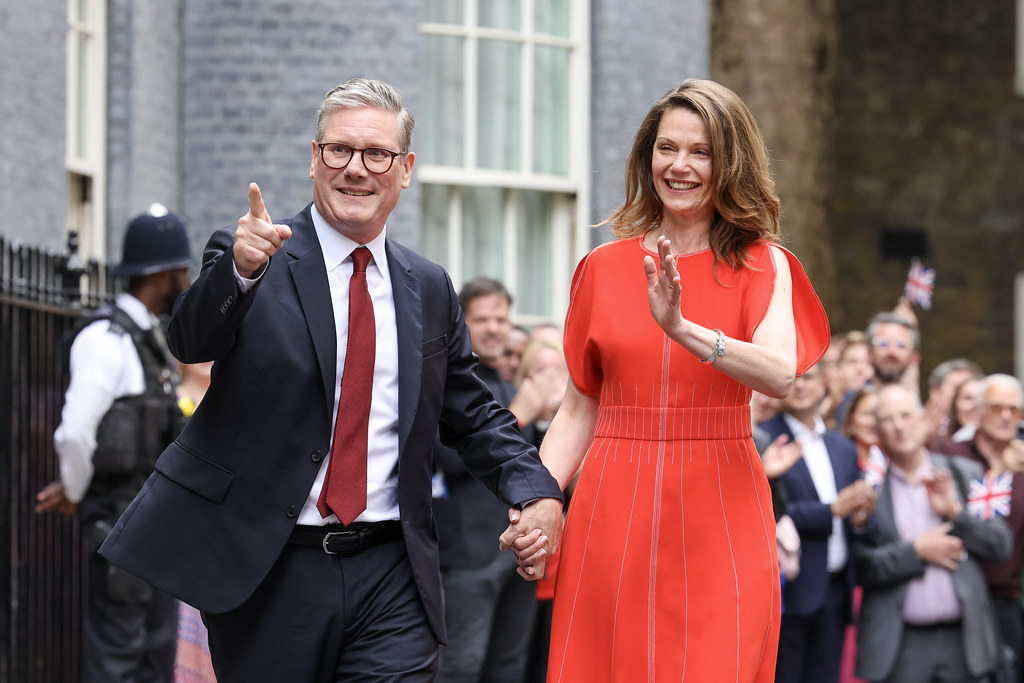
Key Expectations for a Labour Government Under Keir Starmer
Social Justice: Enacting the Race Equality Act and other measures to combat systemic discrimination.
Economic Reform: Increasing investment in public services and exploring new tax policies.
Public Accountability: Enforcing transparency in public services and addressing disparities.
Education and Training: Reforming curriculums and providing anti-racism training.
Health and Support Services: Expanding mental health resources and addressing maternal health disparities.
The Labour Party needs to relocate and reaffirm its ‘political soul’ during its term in office. There are many fundamental policy differences between Keir Starmer’s Labour and Rishi Sunak’s Conservative leadership. However, future expectations for Britain highlight their respective focuses on social justice versus economic stability. Both parties offer distinct visions for Britain’s future, with Labour focusing on social equity while needing to gain a foothold in areas of economic stability and growth traditionally seen as the Conservatives’ forte.
The Transfer of Power Moment
During the ensuing ceremony, Rishi Sunak offers his resignation to the King at Buckingham Palace. After he leaves the Palace, Keir Starmer arrives for the ceremony. Starmer participates in the formal “Kissing of Hands” ceremony where he is asked to form a government. After receiving formal approval from the King, Starmer emerges as the new Prime Minister, driven in the official car to 10 Downing Street, the official residence of the Prime Minister. He then makes a public statement and begins his term as Prime Minister.

A New Chapter
India’s Relationship with the UK: Potential for Change with the New Starmer Labour Government
Overview: The Current Landscape
At first glance, one might not anticipate a drastic alteration in trade relations between India and the United Kingdom with the advent of a new government. Under Rishi Sunak’s Conservative Party, the UK and India have enjoyed a period of strengthened diplomatic and trade relations. Sunak’s administration and supporters closely aligned with Narendra Modi’s BJP, fostering high-level visits and focusing on economic cooperation, strategic defence partnerships, and managing human rights issues with a delicate balance. This partnership was driven by shared economic interests and a common geopolitical strategy, especially in the context of the Indo-Pacific region.
However, the potential for change is significant with the prospect of a Labour government under Keir Starmer. While immediate and drastic shifts might not be expected, there are several nuanced ways in which the Labour Party could reshape the future of UK-India relations.
Potential Shifts with a Labour Government
Revaluation of Diplomatic Relations
Current State: The Conservative government has been characterised by its strong alignment with Modi’s BJP, driven largely by economic and strategic interests.
Labour’s Likely Stance: A Labour government may reassess the UK’s diplomatic stance towards India, potentially moving away from the close alignment with the BJP. This reassessment could involve a more balanced and nuanced approach to diplomatic relations, with greater emphasis on human rights and democratic values. Labour may seek to establish a more diverse and inclusive dialogue that goes beyond the current strategic and economic considerations.
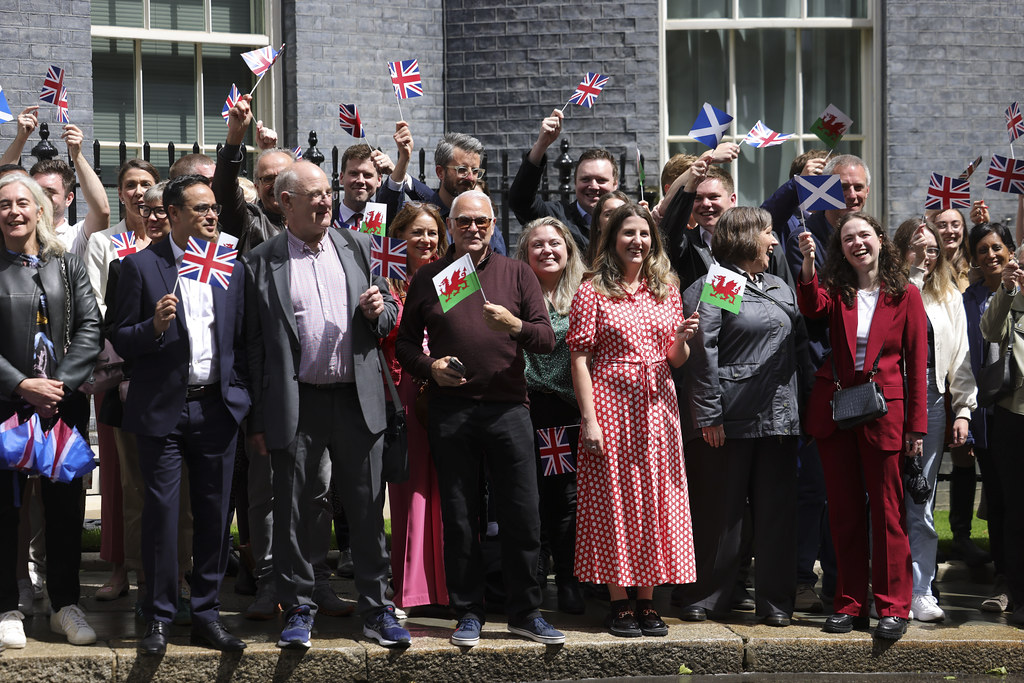
Shift in Economic Priorities
Current State: Under the Conservatives, there has been a strong focus on expanding trade relations, including efforts towards a Free Trade Agreement (FTA) and significant investment in various sectors.
Labour’s Likely Stance: Labour is likely to continue supporting the expansion of trade but with a fresh perspective. While the goal of doubling UK-India trade by 2030 remains a priority, Labour may diversify the economic strategy to foster a broader range of international partnerships. This might include a renewed focus on fair trade practices and addressing global economic challenges through multilateral engagement.
Cultural and Political Dynamics
Current State: The Conservative government has been supported by the Hindu nationalist lobby, which has influenced the cultural and political engagement between the UK and India.
Labour’s Likely Stance: A Labour government might shift away from this influence, aiming to foster a more inclusive
and culturally diverse relationship. This could involve engaging more broadly with India’s diverse communities and supporting cultural exchanges that reflect the pluralistic nature of Indian society.
Human Rights and Values
Current State: Human rights concerns have been managed with a careful balance under the Conservative administration.
Labour’s Likely Stance: Labour is expected to place a stronger emphasis on human rights and democratic values in its diplomatic discussions. This could involve advocating for more robust human rights protections and addressing concerns related to democratic freedoms in India.
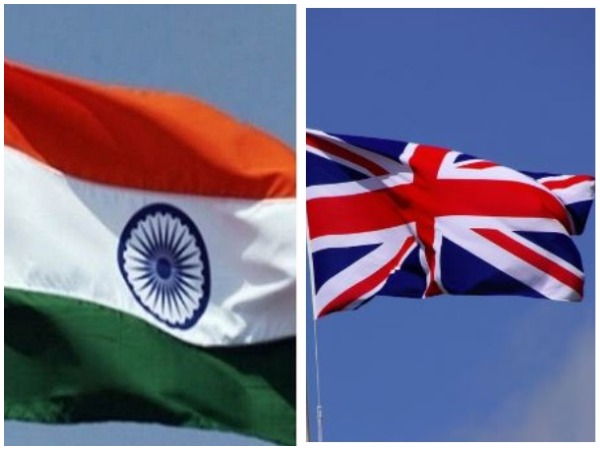
Detailed Overview of the ‘2030 Roadmap for India-UK Future Relations’
The ‘2030 Roadmap for India-UK Future Relations’ is a comprehensive framework aimed at deepening the bilateral partnership between the two countries. Launched on May 4, 2021, the roadmap outlines several key areas for future collaboration. If the Labour Party assumes power, there are specific aspects of the roadmap that are likely to be continued and possibly expanded upon:
Enhanced Trade and Investment Relations
Current Focus: The roadmap sets a target to double UK-India trade by 2030 and advance bilateral investments through an Enhanced Trade Partnership and a Free Trade Agreement.
Labour’s Likely Stance: Labour is expected to support the completion of FTA negotiations and advocate for a trade policy that benefits both nations. This includes exploring opportunities in technology, pharmaceuticals, and green industries, as well as promoting fair trade practices and economic collaboration.
Strategic Partnership and Security Cooperation
Current Focus: Strengthening strategic ties through defence cooperation, counter-terrorism, and regional security in the Indo-Pacific.
Labour’s Likely Stance: Labour has historically supported robust international security collaborations. Under Labour, there is likely to be continued or enhanced cooperation in defence and security, including joint military exercises, intelligence sharing, and efforts to ensure regional stability.

Climate Change and Green Energy Initiatives
Current Focus: Committing to climate action and promoting green energy projects, including renewable energy and climate resilience.
Labour’s Likely Stance: With a strong commitment to achieving net-zero emissions, Labour would likely enhance efforts in climate change mitigation, renewable energy collaborations, and sustainable development initiatives aligned with the ‘2030 Roadmap.’
Education and Research Collaboration
Current Focus: Supporting increased academic partnerships, student exchanges, and joint research initiatives.
Labour’s Likely Stance: Labour values educational and research collaborations and would likely continue to support and expand opportunities for academic exchanges and joint research projects between UK and Indian institutions.
Health and Pharmaceutical Cooperation
Current Focus: Strengthening health sector collaboration, including public health initiatives and vaccine development.
Labour’s Likely Stance: Given Labour’s focus on public health, a Labour government would likely maintain or increase efforts in health sector cooperation, focusing on joint research, public health strategies, and addressing global health challenges.
People-to-People Links and Diaspora Engagement
Current Focus: Strengthening cultural exchanges, tourism, and diaspora engagement.
Labour’s Likely Stance: Labour supports cultural diplomacy and would likely continue to promote initiatives that enhance people-to-people connections between the UK and India, including cultural festivals, tourism, and diaspora engagement.
Digital and Technological Collaboration
Current Focus: Advancing digital and technological partnerships, including cybersecurity and innovation.
Labour’s Likely Stance: Labour acknowledges the importance of the digital economy and technological innovation. They are expected to continue supporting tech collaborations, including joint ventures in startups, cybersecurity research, and digital infrastructure development.

Global Governance and Multilateral Cooperation
Current Focus: Collaborating on global governance issues through international forums like the UN and G20.
Labour’s Likely Stance: Committed to multilateralism, Labour would likely continue working with India on global issues, addressing challenges such as climate change, security, and economic development through international institutions. On a much broader economic scale, it is worth noting Britain’s anticipation of significant Indian investment.
In recent years, India’s economic environment has seen a wave of affluent individuals and businesses seeking more economically and politically stable investment destinations. Concerns about the Modi administration’s economic policies, regulatory environment, and political climate have driven many Indian millionaires to explore opportunities abroad. This presents a prime opportunity for Britain to attract significant investment and foster deeper economic ties with India.
As India’s economic landscape undergoes significant changes, Britain is positioning itself to attract a considerable amount of targeted investment from Indian millionaires and businesses. This shift comes at a time when many wealthy individuals are seeking new opportunities outside the Modi administration’s economic policies. The evolving dynamics of the UK-India relationship offer a unique opportunity for a new chapter in bilateral relations, particularly under the potential leadership of a Labour government.
Britain’s Strategic Goals for Indian Investment
Britain aims to become a prime destination for Indian high-net-worth individuals (HNWIs) and businesses by offering favourable investment conditions, establishing welcoming policies for foreign investors, and promoting the UK as a hub for business and financial activities.
The focus will be on sectors such as technology, finance, real estate, and green energy, which are attractive to Indian investors. Under a Labour government, there is strong potential for targeted initiatives designed to attract Indian investment.
Labour’s approach may involve introducing or expanding financial incentives for Indian investors, such as tax breaks or favourable regulatory conditions. The Labour Party may also explore ideas for simplifying visa and investment procedures for Indian nationals, making it easier for HNWIs and businesses to invest in the UK.
Promoting Strategic Sectors: Labour could focus on key sectors for investment, including green technologies, digital innovation, and advanced manufacturing. Britain’s approach will likely aim to build on existing economic ties with India through strategic partnerships and trade agreements.
The transition from a Conservative to a Labour government represents a potential shift in the dynamics of UK-India relations. While the foundational elements of the ‘2030 Roadmap for India-UK Future Relations’ are likely to remain, Labour’s approach may introduce new priorities and strategies. This includes a more balanced diplomatic stance, a diversified economic strategy, a focus on human rights, and a commitment to green energy and technological advancement.
By focusing on these areas, a Labour government would aim to strengthen the UK-India relationship, building upon the roadmap’s vision for a deep and mutually beneficial partnership.

Challenges Related to the Changing Political-Economic Landscape in India
The relationship between the Modi government’s ideological Hindutva agenda and its economic policies—favouring a few mega-corporates—has complex implications for the ideological commonality with the Labour Party in the UK. In contrast, the Conservative Party has been more closely aligned with Modi’s BJP, engaging significantly with the Hindutva lobby.
To understand this relationship, it is essential to break it down into several components: ideological Hindutva, economic policies favouring monopolies, and Labour movements and their legacy.
Ideological Hindutva and Its Impact
The Hindutva ideological foundation of the Modi government promotes Hindu nationalism, emphasising on subtle the cultural and political dominance of Hindu values and practices in Indian society. Historically, the Labour Party’s ideology has been influenced by socialist principles advocating for workers’ rights, fair wages, and equitable economic policies. Labour has emphasised social justice, economic equality, and the role of the state in protecting workers.
Modi’s policies have shifted focus from worker protections to facilitating large corporate interests, potentially conflicting with Labour’s emphasis on rights and fairness. Additionally, the consolidation of economic power among a few corporations can deepen economic inequality. These issues introduce new dynamics that might overshadow trade interests.
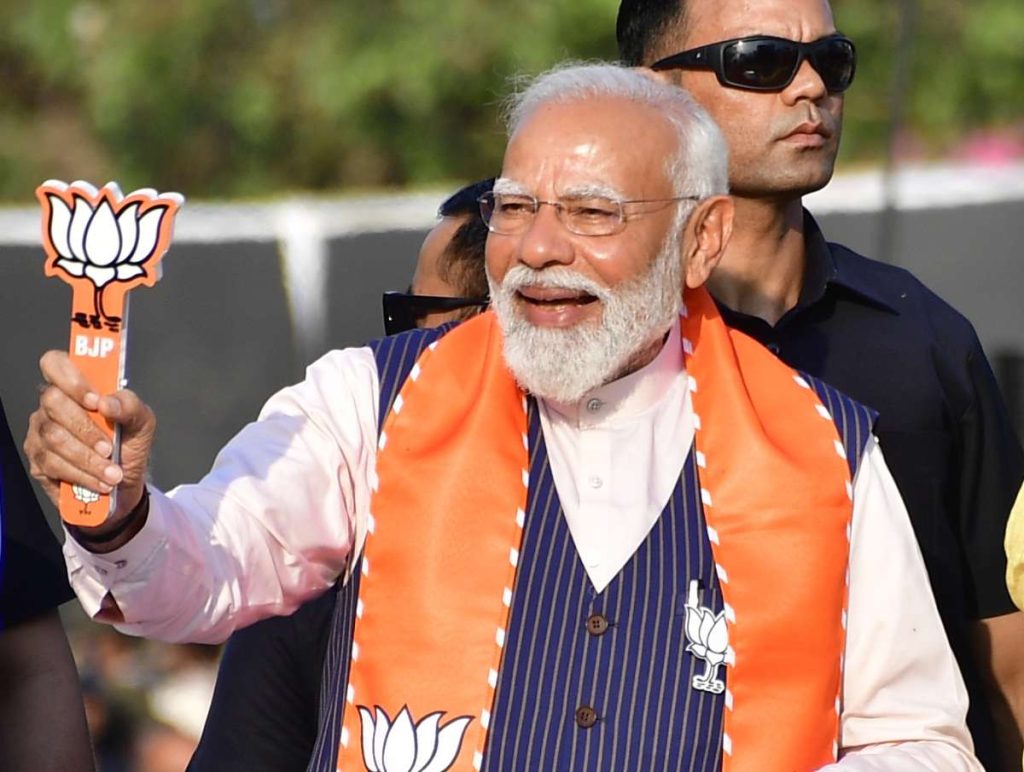
Economic Policy Favouring Monopolies and Labor Movements.
Modi’s economic policies, characterised by a laissez-faire approach that benefits mega-corporates, contrast with Labour’s focus on protecting workers and promoting fair economic practices.
There are serious limitations imposed by the sovereignty protocols and non-interference into domestic politics or policies of other countries. However, understanding these differences is crucial for evaluating future UK-India relations under a Labour government, as it will navigate between trade interests and a commitment to equitable economic policies.
Summary of thoughts
The snap General Election called by Prime Minister Rishi Sunak on June 4, 2024, resulted in a dramatic shift in the British political landscape, with the Labour Party securing a landslide victory and taking 240 seats from the Conservatives. This marked the end of Rishi Sunak’s tenure as the first Prime Minister of Indian heritage, a milestone that may not be repeated soon given the significant electoral defeat. It may also leave the Conservative Party into a state of considerable infights for leadership of varying factions and in chaos that may take a long time to recover form.
The campaign was marked by divisive rhetoric, notably from Nigel Farage of Reform UK, who accused Sunak of being indifferent to British history and culture, a statement viewed as a “dog whistle” for nationalist sentiments. Sunak gracefully conceded defeat, congratulated Labour’s leader Keir Starmer, and acknowledged the electorate’s desire for change.
Rishi Sunak’s administration had focused on economic recovery post-COVID-19, balancing fiscal responsibility with strategic public spending. This approach represented a departure from the austerity measures of previous Conservative governments. However, the election outcome indicated a public preference for Labour’s platform of social justice and economic reforms.
Keir Starmer’s Labour government promises significant changes, including enacting a Race Equality Act to ensure equal pay rights for Black, Asian, and minority ethnic (BAME) workers and the disabled, introducing measures to combat systemic discrimination, and boosting investment in public services. Labour’s agenda contrasts sharply with the Conservative focus on economic stability, highlighting a shift towards addressing social inequalities and promoting inclusivity.
The transition of power was orderly, with Sunak offering his resignation to the King and Starmer being formally invited to form a new government. Starmer’s vision includes comprehensive reforms in education, healthcare, and climate action, aiming to rebuild and renew the nation.
The Labour government is also expected to reassess UK-India relations. While Sunak’s administration enjoyed a strong partnership with Narendra Modi’s BJP, more aligned to the ideology of exclusivity of Hindutva driving India towards a Hindu Rastra. Modinomics also has more aggressive focus on ‘Laissez-faire model of economy with preference to exclusivity of monopoly for a dew mega-rich corporate family. The new Labour government may need to adopt a more balanced approach, emphasising human rights and democratic values alongside economic cooperation.
The strategic goals for UK-India relations under Labour include continuing efforts to enhance trade and investment, fostering cultural exchanges, and supporting joint initiatives in technology and green energy. The relationship is poised for evolution, reflecting Labour’s commitment to a fairer and more inclusive global engagement.
ALSO READ: Record 26 Indian-Origin MPs Enter UK Parliament
ALSO READ: Starmer Unveils New Cabinet; Names UK’s First Female Chancellor
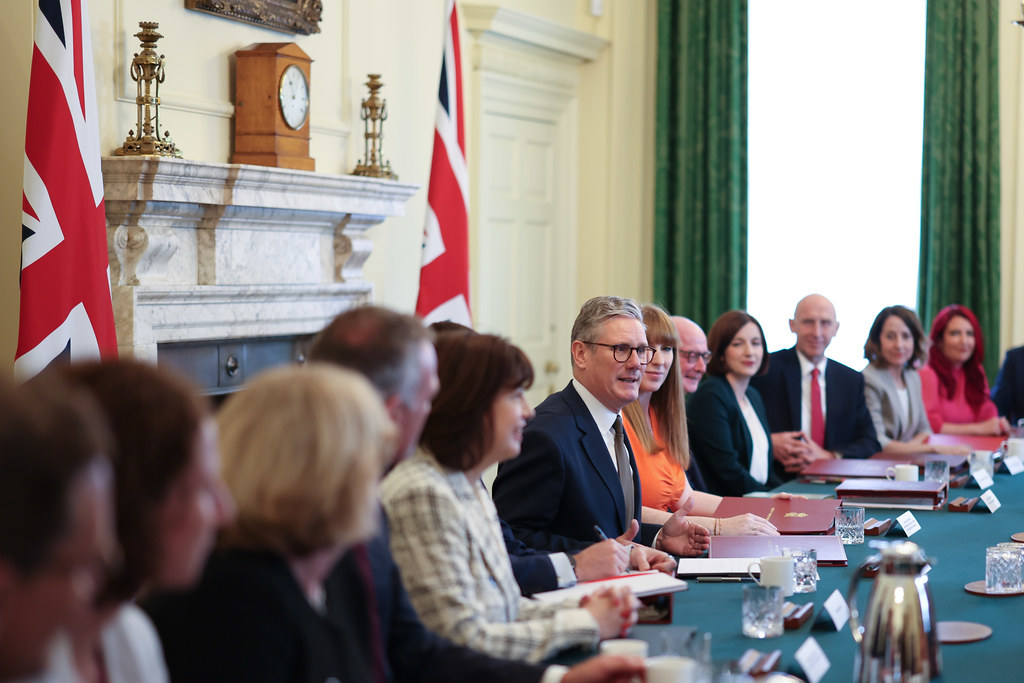
Leave a Reply